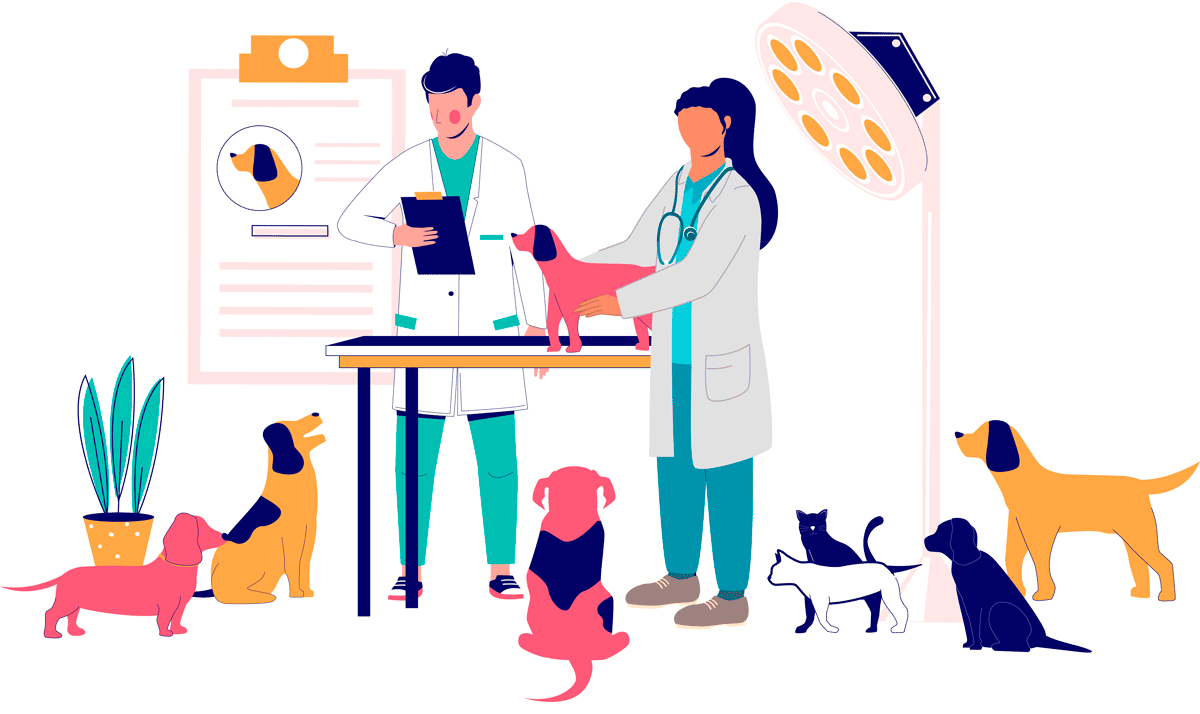The Value of Early Detection: Insights From a Vet Oncologist
Early discovery of cancer in family pets is an essential topic for pet dog owners and veterinary specialists alike. Veterinary oncologists stress the significance of identifying refined indications that might indicate severe health concerns. Common signs usually go unnoticed until they escalate. Recognizing these very early warning signs and developments in diagnostic methods can make a substantial distinction. What actions can pet dog owners take to improve their pets' chances of early diagnosis and much better treatment end results?
Understanding Cancer in Animals: Usual Types and Symptoms
While numerous pet dog owners may not realize it, cancer is a significant health issue influencing pets, just like it does in people. Typical kinds of cancer in family pets consist of lymphoma, mast cell growths, osteosarcoma, and mammary growths. These malignancies can manifest in different ways, relying on their place and kind. Signs frequently consist of unexplained weight-loss, persistent throwing up, adjustments in hunger, or uncommon lumps and bumps. Pet dogs may likewise exhibit lethargy, trouble breathing, or unwillingness to workout, which can indicate underlying health and wellness issues. Early indications can be refined, making it vital for pet proprietors to be watchful of their pets' habits and physical problem. Understanding these usual types and connected signs and symptoms can equip proprietors to look for veterinary care without delay, potentially causing earlier diagnosis and therapy alternatives. Acknowledging the signs of cancer in family pets is a vital step in the direction of boosting their health and lifestyle.
The Duty of Vet Oncologists in Early Detection
Veterinary oncologists play an essential role in the very early discovery of cancer cells in pets, as their specialized training equips them with the skills needed to determine refined indicators that might be ignored by family doctors. They utilize a mix of scientific experience and progressed analysis devices to analyze people completely - Veterinary Oncology Services. By identifying very early symptoms and risk elements, oncologists can guide family pet owners towards prompt interventions, enhancing the chances of successful treatment
Veterinary oncologists typically work together with general professionals to create screening procedures tailored to details breeds or age teams, enhancing the effectiveness of early discovery efforts. They educate family pet owners on the value of normal examinations and understanding of modifications in habits or physical problem. Through these aggressive procedures, veterinary oncologists considerably contribute to enhancing outcomes for animals diagnosed with cancer cells, highlighting the vital nature of their function in veterinary medical care.
Developments in Diagnostic Techniques for Pet Cancer
Innovations in analysis methods have substantially enhanced the capability to identify cancer in animals at earlier stages. Strategies such as advanced imaging, including MRI and CT scans, offer in-depth internal sights, enabling veterinarians to recognize tumors that may not be palpable. Additionally, the advancement of minimally intrusive procedures, such as great needle aspirates and biopsies, allows precise tasting of tissues for histopathological examination with decreased stress for the animal.
Emerging molecular diagnostics, consisting of genetic screening and biomarker identification, are changing the landscape of veterinary oncology. These approaches can recognize specific cancer types and anticipate reactions to therapy, helping with customized care strategies. Advancements in laboratory techniques, such as fluid biopsies, are starting to offer non-invasive options for keeping an eye on lump progression and therapy effectiveness. Jointly, these innovations stand for a considerable leap onward in vet medication, stressing the important function of very early detection in improving outcomes for animals diagnosed with cancer cells.
Just How Family Pet Owners Can Recognize Caution Indications
Just how can pet dog owners end up being alert in recognizing prospective warning indications of cancer? Awareness of physical and behavioral modifications in animals is essential. Usual indications consist of unusual sleepiness, loss of appetite, or unexpected weight modifications. Animal proprietors must also focus on relentless throwing up or looseness of the navigate to this site bowels, which may indicate underlying problems.
Adjustments in the skin, such as swellings, bumps, or sores that do not heal, require instant vet focus. In addition, proprietors must keep in mind adjustments in alcohol consumption routines, increased urination, or difficulty in breathing. Inexplicable limping or pain may also be indicators of more significant conditions.
Normal vet examinations can assist determine these warning indications early. By preserving a close observation of their family Resources pets' wellness and actions, proprietors can play a crucial duty in early discovery, possibly resulting in much better results need to cancer be detected. Recognizing these indications may considerably impact an animal's lifestyle.
The Effect of Very Early Discovery on Therapy Results
Early detection of cancer in pet dogs plays a vital role in identifying treatment end results, as it often enables a bigger variety of healing choices. When cancer cells is detected in its beginning, veterinarians can implement less invasive therapies, boosting the possibility of effective intervention. Early-stage cancers cells might also react far better to radiation treatment or radiation, bring about enhanced survival rates and total lifestyle for the pet dog.
Additionally, prompt medical diagnosis helps with a more tailored therapy plan, lining up with the particular requirements of the animal. This can consist of individualized drug programs or medical interventions that are less aggressive. Conversely, late-stage detection commonly leads to restricted alternatives, much more aggressive therapies, and poorer prognoses. Subsequently, the importance of very early detection can not be overemphasized; it fundamentally changes the trajectory of therapy, making it essential for pet owners to continue to be vigilant for any kind of indicators of illness in their cherished companions.
Often Asked Questions

Exactly How Can Diet Regimen Impact Cancer Danger in Family Pets?
Diet regimen substantially influences cancer cells risk in family pets, as particular nutrients and food types can either hinder or promote tumor development. A balanced, nutrient-rich diet plan might aid lower the possibility of establishing cancer in animals.
Are Particular Breeds Much More Prone to Cancer?
Particular pet breeds, such as Golden Retrievers and Boxers, display higher cancer cells sensitivity because of hereditary tendencies. Similarly, some feline types also reveal boosted cancer dangers, highlighting the importance of breed-specific health and wellness awareness amongst animal proprietors.
What Are the Prices Associated With Very Early Cancer Discovery?
The prices connected with early cancer discovery can differ substantially, including analysis examinations, assessments, and prospective treatments - Veterinary Cancer Specialist. Investing in these solutions usually causes better wellness outcomes, inevitably saving on more substantial future medical expenditures
Can Vaccines Stop Cancer Cells in Family Pets?


Vaccinations might reduce the threat of specific cancers cells in pets, particularly those connected to viral infections. However, their performance varies, and animal owners need to seek advice from veterinarians for customized advice pertaining to vaccination and cancer avoidance techniques.
Just How Frequently Should Family Pets Be Evaluated for Cancer?
Pets need to generally be screened for cancer cells each year, especially as they age or if they exhibit danger variables. Regular veterinary examinations can aid identify prospective concerns early, enhancing therapy outcomes and overall wellness management.
Early detection of cancer cells in pets is a crucial subject for family pet owners site link and veterinary professionals alike. Early indications can be refined, making it crucial for pet proprietors to be observant of their family pets' behaviors and physical problem. Vet oncologists play a necessary role in the very early discovery of cancer cells in pets, as their specialized training outfits them with the abilities required to identify subtle indications that might be forgotten by basic practitioners. By keeping a close observation of their animals' health and behavior, owners can play a key role in very early discovery, possibly leading to much better outcomes ought to cancer be diagnosed. Early discovery of cancer in animals plays an essential role in establishing treatment results, as it typically enables for a wider array of restorative choices.